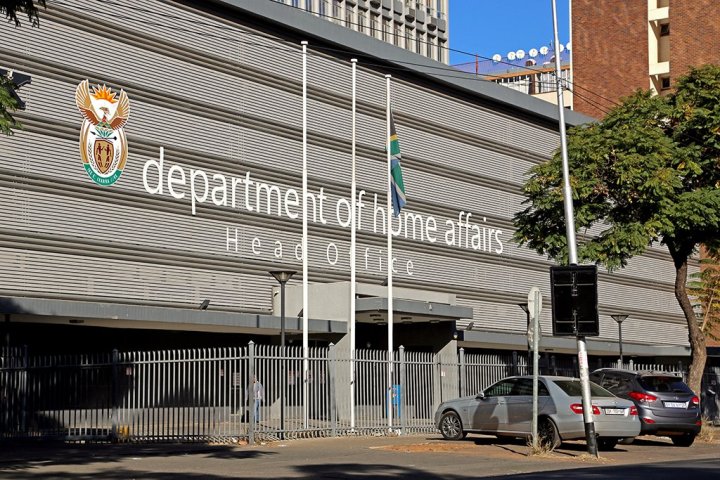Home Affairs Rolls Out Upgraded Identity Verification System from 1 July 2025
After extensive consultation and technical development, Home Affairs has unveiled a state-of-the-art OVS that addresses these core problems.

- Country:
- South Africa
In a sweeping move to modernise South Africa’s identity management infrastructure, Home Affairs Minister Dr. Leon Schreiber announced the official rollout of an upgraded National Population Register (NPR) Online Verification System (OVS), scheduled to take effect from 1 July 2025. The modernised system promises to dramatically improve real-time identity verification for government institutions and private-sector users, while also addressing longstanding service failures caused by outdated technology and underfunding.
The revamped OVS is not only expected to reinforce the credibility and functionality of Home Affairs services but also serve as a pivotal step toward a future-ready digital identity ecosystem, enhanced financial inclusion, and stronger national security.
Why the Upgrade Was Necessary
Since its initial deployment in 2013, the OVS has been used by third-party entities—including banks, insurers, telecoms, and government departments—to verify personal identity information against the Home Affairs database. However, despite its critical role in ensuring secure and accurate verification, the system had not undergone any substantial upgrades in more than a decade.
As demand for verification surged, the infrastructure fell into decay, plagued by frequent system failures and lengthy response times. In some cases, users reported a failure rate exceeding 50%, severely undermining critical government functions and causing frustrating delays at Home Affairs offices, where “system offline” signs became an all-too-familiar sight.
The root cause, according to the department, was two-fold:
-
Overuse by private sector institutions due to artificially low verification fees (as little as R0.15 per check).
-
Lack of reinvestment in system upgrades and infrastructure maintenance, leading to severe underperformance.
Features and Benefits of the New Verification System
After extensive consultation and technical development, Home Affairs has unveiled a state-of-the-art OVS that addresses these core problems. The key improvements include:
-
Real-time functionality, reducing verification response times to seconds.
-
A reduction in failure rates to below 1%, ensuring reliability across use cases.
-
Introduction of non-live batch verifications, allowing organisations to verify multiple identity records during off-peak hours at reduced cost—easing strain on the live verification system.
-
User-friendly modern interface, scalable for future integration with the government’s digital ID initiatives.
These changes are designed not only to boost operational efficiency but also to eliminate the bottlenecks that have long hampered service delivery and security procedures across both public and private sectors.
New Tariff Structure: Balancing Cost and Sustainability
To support the upgraded service, Home Affairs will implement a new fee schedule—the first adjustment in more than 10 years. This was done in full consultation with stakeholders and with the concurrence of the Minister of Finance.
Effective 1 July 2025:
-
Real-time verifications will be charged at R10 per transaction.
-
Non-live batch verifications, processed during off-peak periods, will cost R1 per verification field request.
-
Government departments will continue to access the service at no charge, supporting critical public sector functions such as grants administration, social services, and border control.
According to the department, these new fees are cost-reflective and fair, especially when compared with the margins typically charged to end-clients by commercial users of the service.
Safeguarding National Security and Supporting Financial Reform
Minister Schreiber emphasized that the rollout of the upgraded system goes beyond improving service convenience—it is a matter of national security. A functional and secure NPR is a critical component of the country’s identity integrity, crime prevention, and its efforts to comply with international anti-money laundering standards.
“This upgrade also advances financial inclusion and makes a significant contribution to South Africa’s attempts to get off the Financial Action Task Force’s grey list,” Schreiber said.
“A healthy NPR is a prerequisite for a functional Digital ID. This investment is an investment in national security, in financial inclusion, and in the value of our cherished South African identity.”
The department has invited organisations that wish to connect to the new OVS to initiate the process by contacting verifications@dha.gov.za.
Gazette and Further Information
The updated fee structure and full regulatory notice have been published in Government Gazette No. 52893, dated 23 June 2025. The gazette can be accessed online at: https://www.dha.gov.za/images/gazettes/gazette-52893-230625-dha.pdf
Looking Ahead: A Digital-First Department
The OVS upgrade marks the beginning of a broader shift toward a digitally enabled Home Affairs, where services such as ID applications, passport renewals, and border control are all supported by a robust, real-time national identity system.
With a reliable NPR as its backbone, South Africa’s long-term vision of interoperable digital public infrastructure—from health care to education to banking—moves one step closer to reality.
ALSO READ
Greece's National Security Meeting Amid Middle East Tensions
Trump Returns Early from G7: National Security Council on Alert
U.S. Steel's Golden Share Twist: National Security vs. Foreign Investment
Hong Kong's National Security Crackdown: A Joint Operation Unveiled
China's National Security Blueprint: Preserving CCP Hegemony










